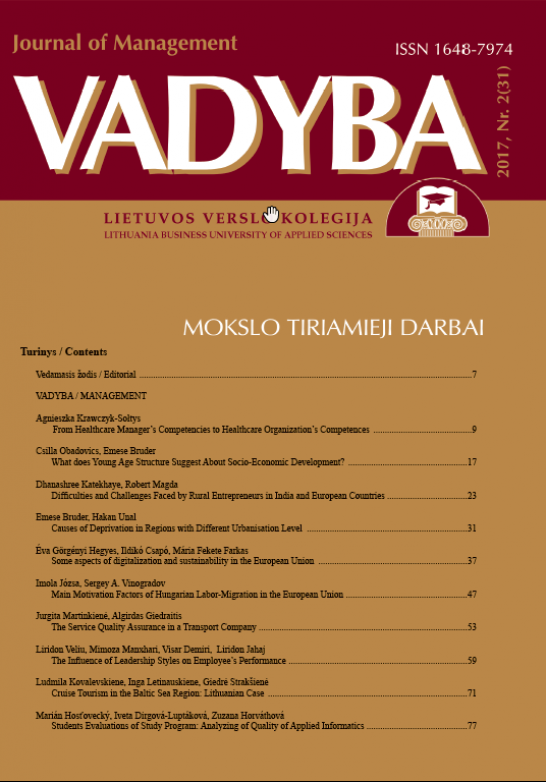SOME CURRENT ISSUES OF ENERGY EFFICIENCY IN
THE EUROPEAN UNION
SOME CURRENT ISSUES OF ENERGY EFFICIENCY IN
THE EUROPEAN UNION
Author(s): Tibor László Csegődi, Tamás NaárSubject(s): Energy and Environmental Studies, EU-Approach / EU-Accession / EU-Development
Published by: Lietuvos verslo kolegija
Keywords: energy trilemma theory; energy union; energy consumption of residential sector; energy efficiency;
Summary/Abstract: According to World Energy Council the definition of energy sustainability is based on three core dimensions: energy security, energy equity, and environmental sustainability. Energy efficiency also plays an important role in the index which is described by energy trilemma theory. The European Council sets its goal in October 2014. Based on this level of energy efficiency will have to improve by at least 27% till 2030. This value will be adjusted by 2020, which likely means the level should increase to 30% in the European Union. It is estimated that each 1% increase in energy savings allows 2.6% reduction in gas imports, thus reducing the EU's energy dependency. Based on data from 2015, the level of energy consumption in the EU was broadly in line with the 1990 level, while only half of the EU Member States (14 states) reduced their gross domestic energy consumption between 2015 and 1990. In our paper, we would like underline the fact by statistical calculations too that households are responsible for 25.4% of final energy consumption, which is roughly the same as that of industry's final energy consumption. The latter can be traced back to the fact that 75% of the EU housing stock is unsatisfactory for its energy efficiency. To exploit the energy efficiency potential of buildings, actions are needed by member states, primarily at regional and local level. This paper outlines the European Union and Hungarian legal requirements of energy efficiency. This is important because the 2012 Energy Efficiency Directive of the European Union requires a 3% renewal of public buildings annually. The 2010 Directive on the Energy Efficiency of Buildings, for example, requires that all new buildings till 2021 need close to zero energy. Surveys show that the population of Hungarian small settlements is considered to be environmentally conscious, and in addition, the state has set up the National Energy Network to reduce the energy consumption of public institutions, businesses and the population. However, legal regulation is not sufficient to meet the requirements. In the final part of our paper, we show that in order to make effective action, the state's financial incentive would be needed in this area.
Journal: VADYBA
- Issue Year: 31/2017
- Issue No: 2
- Page Range: 111-116
- Page Count: 6
- Language: English

